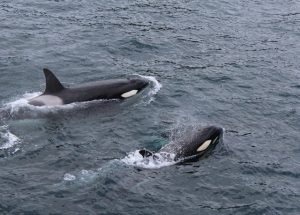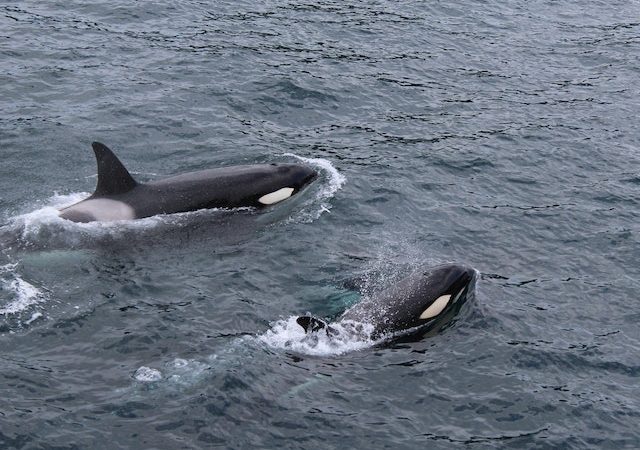Introduction The oceans, vast and mysterious, are home to some of the planet’s most magnificent creatures, including dolphins. These intelligent and majestic beings have long captured our hearts with their playful nature and remarkable social lives. However, as human activities increasingly impact marine ecosystems, the need for dolphin conservation has never been more pressing. In
Introduction
The oceans, vast and mysterious, are home to some of the planet’s most magnificent creatures, including dolphins. These intelligent and majestic beings have long captured our hearts with their playful nature and remarkable social lives. However, as human activities increasingly impact marine ecosystems, the need for dolphin conservation has never been more pressing. In this enlightening exploration, we will dive deep into the world of dolphin conservation. Join us as we uncover the reasons why safeguarding these majestic creatures is not just an option but an imperative for the health of our oceans and our planet.
Meeting Our Marine Experts
Before we plunge into the depths of dolphin conservation, let’s meet the experts who will be our guides:
- Dr. Michael Turner: A dedicated marine biologist with a Ph.D. in Marine Conservation from the University of Hawaii, Dr. Turner specializes in researching the ecological importance of dolphins and their conservation needs.
- Captain Emily Wilson: With years of experience as a marine biologist and conservation advocate, Captain Wilson offers unique insights into the challenges and efforts to protect dolphins in their natural habitat.
The Ecological Importance of Dolphins
Indicators of Ecosystem Health
Dolphins serve as crucial indicators of marine ecosystem health. Dr. Turner explains, “Their presence and behavior provide valuable insights into the overall well-being of our oceans. A thriving dolphin population indicates a healthy ecosystem.”
Keystone Species
In some ecosystems, dolphins act as keystone species. Captain Wilson adds, “They play a vital role in maintaining the balance of their habitat by controlling prey populations and influencing the distribution of marine life.”
Threats to Dolphins
Habitat Destruction
Human activities, such as coastal development and pollution, threaten dolphin habitats. Dr. Turner emphasizes, “The destruction of their habitats disrupts their feeding and breeding grounds, endangering their survival.”

Photo by Dianne Maddox: https://www.pexels.com/photo/two-black-and-white-dolphins-on-body-of-water-3695720/
Fisheries Bycatch
Dolphins often fall victim to fisheries bycatch, unintentionally caught in fishing nets. Captain Wilson says, “Bycatch poses a significant threat, impacting both dolphin populations and the livelihoods of fishermen.”
Conservation Efforts
Marine Protected Areas
Marine protected areas (MPAs) offer refuge for dolphins and other marine life. Dr. Turner notes, “Creating and expanding MPAs is a crucial step in safeguarding their habitats and ensuring their survival.”
Sustainable Fishing Practices
Promoting sustainable fishing practices helps reduce bycatch. Captain Wilson adds, “Implementing technologies like dolphin-safe nets and educating fishermen about responsible practices is essential.”
The Ripple Effect
Biodiversity Conservation
Protecting dolphins contributes to broader biodiversity conservation. Dr. Turner elaborates, “When we safeguard dolphins, we preserve the intricate web of life within our oceans, benefiting countless other species.”
Environmental Stewardship
Conserving dolphins fosters a sense of environmental stewardship. Captain Wilson concludes, “By advocating for dolphin protection, we instill a commitment to preserving the oceans and the planet for future generations.”
Insights in a Nutshell
Let’s encapsulate the key takeaways in a visually engaging table:
Dolphin Conservation
| Ecological Importance | Threats to Dolphins | Conservation Efforts |
|---|---|---|
| Ecosystem Indicators | Habitat Destruction | Marine Protected Areas |
| Keystone Species | Fisheries Bycatch | Sustainable Fishing |
| The Ripple Effect |
Conclusion
Dolphin conservation is not just about protecting a single species; it’s about preserving the delicate balance of our oceans and fostering a sense of responsibility for our planet. Our marine experts, Dr. Michael Turner and Captain Emily Wilson, have illuminated the crucial reasons why safeguarding these majestic creatures matters. As we delve into the world of dolphin conservation, may we recognize that our actions to protect them have far-reaching consequences, shaping the future of our oceans and the well-being of all life on Earth.
In this exploration, we’ve delved into the importance of dolphin conservation with insights from marine experts. We hope this journey inspires a commitment to the preservation of these magnificent marine creatures and the ecosystems they inhabit.

















Leave a Comment
Your email address will not be published. Required fields are marked with *